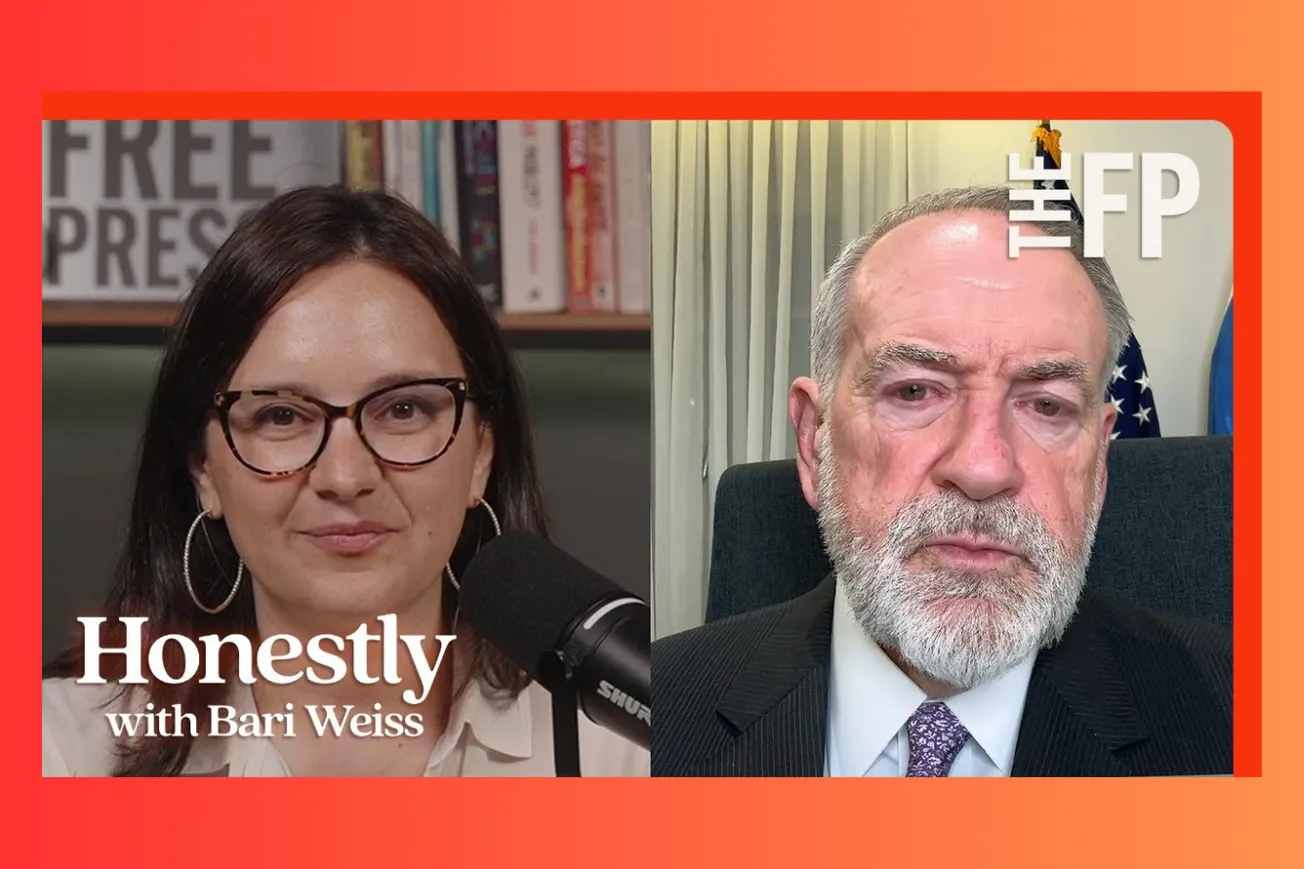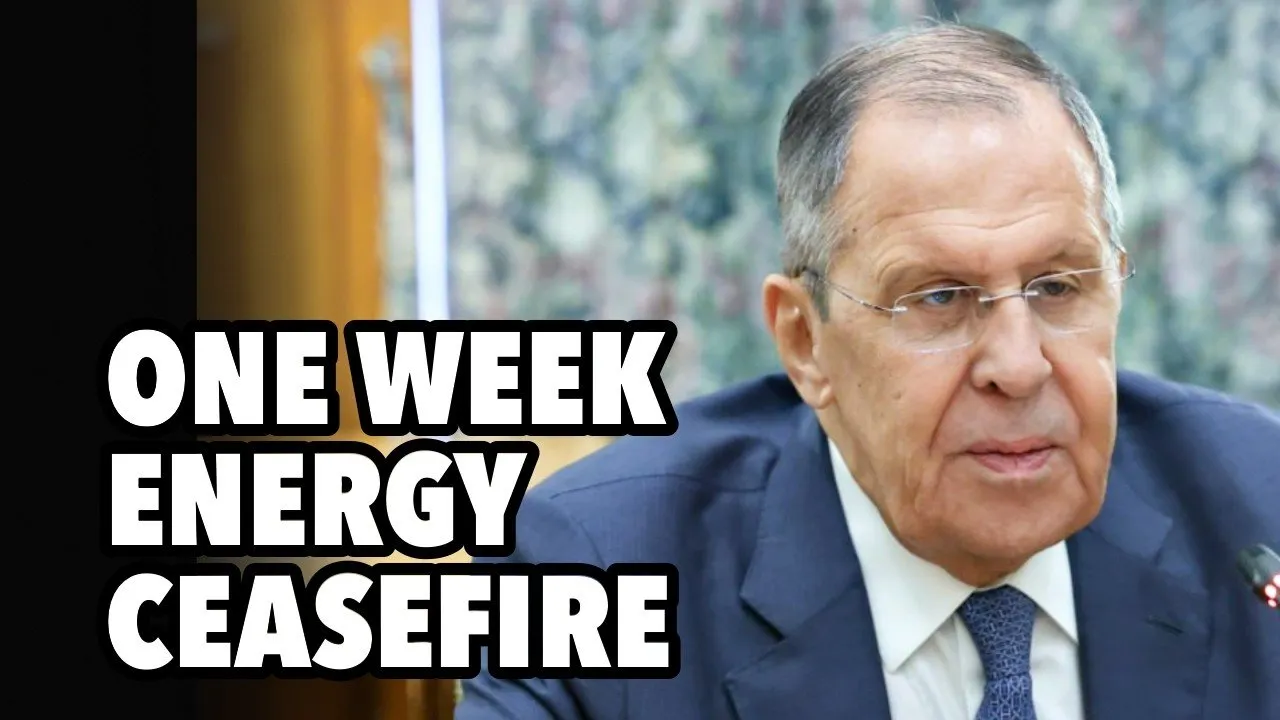Table of Contents
In a wide-ranging conversation from Jerusalem that ended abruptly when rocket sirens forced Ambassador Mike Huckabee into a bomb shelter, America's envoy to Israel provided the clearest articulation yet of the Trump administration's Middle East doctrine. His message was unambiguous: Iran will never be allowed nuclear weapons, Hamas has no future in Gaza, and America won't be dragged into wars—but will lead them when necessary.
Key Takeaways
- Trump has repeatedly stated Iran "will never have a nuclear device" and must achieve "total dismantlement" of their nuclear program with no enrichment allowed
- The administration views Hamas, Hezbollah, and Houthis as dishes from the same kitchen - all emanating from Tehran's proxy network
- Netanyahu genuinely wants hostages home but won't accept a Hamas victory that incentivizes future October 7th-style attacks
- There's an internal MAGA battle between isolationists like Tucker Carlson and hawks like Marco Rubio over Iran policy
- 700,000 Americans live in Israel - more than any foreign country except Mexico - making isolationist policies untenable
- Media coverage has contributed to rising anti-Semitism by parroting Hamas sources and creating false equivalencies with historical genocides
- The rising anti-Semitism on both left and right represents a fundamental threat to Western civilization's Judeo-Christian foundation
Trump's Crystal Clear Iran Doctrine
Despite widespread confusion about the administration's Iran policy, Ambassador Huckabee insists President Trump's position is "crystal clear." Trump has stated repeatedly that Iran "will never have a nuclear device," must achieve "total dismantlement" of their nuclear program, and "cannot have enrichment" of any kind.
"They can't have centrifuges. They can't have reactors," Huckabee explains, describing his role as simply dispensing the medicine Trump has prescribed. "He's the chemist. I'm the pharmacist. I listen, I open the bottle, I look at the medicine and here's what it says: They're never going to have a nuclear device."
This represents a maximalist position that goes far beyond previous nuclear negotiations. When asked if Iran would ever accept such terms, Huckabee acknowledges it's "hard for me to think that there would be" a deal, but suggests Iran might decide "to hold on to their regime is the best chance they have."
The ambassador traces Iran's consistent messaging over 46 years: "Israel is the appetizer. The US is the entree." He warns that anyone who thinks America has "nothing to do with the whole Iranian Israeli thing" is ignoring decades of explicit threats from Tehran to destroy both the "little Satan" and the "great Satan."
The Hamas War: Incompatible Goals or Strategic Necessity?
On the persistent question of whether Israel's two war goals - defeating Hamas and freeing hostages - are fundamentally incompatible, Huckabee draws parallels to World War II. Would anyone have praised Churchill for telling Hitler "this thing has gone on a long time" and allowing the Nazis to keep Germany in exchange for peace?
"The reason this war has lasted as long as it has is because of Hamas," he states emphatically. "The reason the hostages are not home yet, all of them, is because of Hamas." He reveals that Israel has offered to put Hamas leaders "on planes and fly them in exile to wherever they want to go," but Hamas prefers to continue torturing hostages.
Huckabee pushes back hard against criticism of Netanyahu's motives, particularly former PM Ehud Barak's claim that Netanyahu prioritizes political survival over hostage recovery. Having spent extensive time with the Prime Minister, Huckabee describes a leader focused on ensuring "October 7th never happens again" rather than personal political calculation.
The ambassador emphasizes that letting Hamas claim victory would "incentivize more October 7ths and more hostage taking because it will prove it works." This represents the core strategic logic behind continuing the fight despite the humanitarian costs.
The Internal MAGA Civil War
Perhaps the most revealing aspect of the conversation involves the battle for Trump's foreign policy soul between different factions within the MAGA movement. On one side are isolationists like Tucker Carlson, who recently attacked Mark Levin for "lobbying for war with Iran" and suggested Iran should be allowed some uranium enrichment.
On the other side are hawks like Secretary of State Marco Rubio and Defense Secretary Pete Hegseth, who understand that "if Israel falls, it's not the only domino that's going down."
Huckabee acknowledges this tension but insists people should "listen to what Donald Trump himself says" rather than interpreting through various advisors. He notes that Trump "hasn't appointed Tucker Carlson to anything" while placing hawks in key positions.
When pressed about Steve Witkoff's more conciliatory approach to Iran negotiations, including his comment that Qatar is "doing God's work," Huckabee diplomatically suggests they may have "different views" but are "playing for the same team."
The ambassador reveals Trump's approach as fundamentally pragmatic rather than ideological: "He usually approaches every issue with two questions: Will it work? And will it make things better?" This explains seemingly contradictory moves like immediately lifting sanctions on Syria's new leadership.
The Qatar Complication
Huckabee addresses the complex relationship with Qatar, which hosts America's largest Middle East military base while simultaneously funding Al Jazeera and previously harboring Hamas leadership. He acknowledges Qatar has sometimes been helpful but insists they cannot be "completely trusted" while "sponsoring Al Jazeera" and maintaining ties to the Muslim Brotherhood.
The ambassador's nuanced view reflects the administration's broader challenge: working with imperfect partners while maintaining strategic objectives. He notes that people like Attorney General Pam Bondi, who previously worked as a Qatar lobbyist, now must "set aside" business associations and "look at things objectively."
When Qatar offered Trump a luxury jet, Huckabee emphasizes this was "already in the works when Joe Biden was president" as an interim solution while Boeing delays delivery of the new Air Force One. The gift represents practical necessity rather than personal corruption.
America's Stake in Israel's Survival
One of Huckabee's most compelling arguments against isolationism involves a statistic many Americans don't know: 700,000 Americans live in Israel - more than any foreign country except Mexico. "That's an entire congressional district" in a country the size of New Jersey.
"Americans have died in October 7th, in the Gaza war. They've died as hostages," he explains. If Iran launched a major ballistic attack on Tel Aviv, "there'll be American citizens who will almost inevitably be part of the carnage."
This reality makes isolationist policies toward Israel effectively "abandoning a huge swath of Americans," not just Israelis. The ambassador notes he regularly hears sirens and heads to shelters due to Houthi missile attacks - a reality affecting Americans living throughout Israel.
Beyond demographics, Huckabee emphasizes the unique intelligence partnership: "The level of intelligence sharing that we have with Israel is unlike anything else on the planet." This makes Israel not just an ally but America's only true "partner" in terms of strategic cooperation.
Media Malpractice and Rising Anti-Semitism
The ambassador unleashes his strongest criticism on media coverage of the Gaza aid crisis, where major outlets including AP, CNN, Washington Post, and New York Times all reported that Israeli forces killed around 30 Palestinians queuing for aid - a story that proved completely false.
"I was outraged when I saw these media reports because I knew absolutely that what they were reporting was a lie," Huckabee states. The reports were based solely on Hamas sources and Al Jazeera, with no independent verification or Israeli response included.
The truth, according to Huckabee, involved one incident where people "veered off the marked course" and were fired upon after refusing to stop - but no casualties occurred at the aid distribution site itself. Several outlets quietly corrected their reports days later, but the damage was done.
This pattern contributes to rising anti-Semitism, Huckabee argues, pointing to recent murders of Israelis in Washington and attacks on Holocaust survivors. He notes that coverage linking Israel with genocide has reached levels "nine times higher than the peak for Rwanda" in the New York Times, despite the vastly different scales of violence.
The Spiritual Dimension of Anti-Semitism
In one of the conversation's most philosophical moments, Huckabee offers a theological explanation for persistent anti-Semitism. He argues that hatred of Jews represents hatred of "a God of absolute truth" who established moral standards through Jewish history and law.
"If you really do hate the God of the universe, the creator, the one who gave us the law, then you look for someone to represent that God that you can put your hate toward," he explains. "That would be the Jewish people."
This connects to his concern about rising anti-Semitism on both the political left and right. On elite university campuses, he's "surprised not that it's happening as much as I'm surprised by who's leading it" - educated students whose parents pay $70,000-80,000 annually for them to become "useful idiots to the far left."
But he's equally concerned about anti-Semitism emerging from the cultural right, particularly among young men spending significant time online. "It's not some place I expected to see it come from," he admits, noting the danger when intelligent people "show a level of ignorance that is incredibly dangerous."
The October 7th Catalyst
Perhaps most troubling to Huckabee is how October 7th - the worst massacre of Jews since the Holocaust - actually increased rather than decreased anti-Semitism globally. Instead of serving as a wake-up call about threats to Jewish people, "we had people who instead said they had it coming."
He draws parallels to the rise of Nazi Germany, noting that "the Germans at the time were the most intellectually superior people on earth. They had the best scientists, doctors, philosophers, theologians." Yet from this "intellectual powerhouse" came the Holocaust.
"If that kind of thing starts happening again, and it is, then we ought to be very fearful for what's happening to our culture," he warns. The targeting of Jews for being Jewish, rather than any specific political disagreement, represents a fundamental threat to civilized society.
Trump's Disruptive Diplomacy
Huckabee defends Trump's unconventional diplomatic style, including his surprise announcement about potentially taking over Gaza administration. While senators "were tearing their garments," Middle Eastern countries that had shown zero interest in Gaza suddenly began offering to help.
"What was he doing? He was moving the game off high center where it was stuck," Huckabee explains. Trump deliberately creates disruption to break diplomatic deadlocks, then works to channel the resulting energy toward solutions.
This approach reflects Trump's nature as someone "willing to pull the pin, roll the grenade in the middle of the room and watch everybody scramble for the doors." Once outside, he asks "now what are we going to do?" - forcing all parties to engage seriously rather than maintaining failed status quo positions.
The ambassador sees this as necessary given that "simply oiling the machinery that has been built by both Democrat and Republican administrations in foreign policy has been a colossal, abysmal failure."
The Siren at Interview's End
The conversation's dramatic conclusion - Huckabee being forced into a bomb shelter mid-sentence when rocket sirens sounded - provides perhaps the most powerful illustration of Israel's daily reality. For the ambassador, this represents the normalized abnormal: regular interruptions of daily life by missiles from Iran's proxy forces.
"That's the world we live in in Israel," he says matter-of-factly before cutting off to seek shelter. It's a reality affecting not just Israelis but hundreds of thousands of American citizens who've made Israel their home.
This moment crystallizes the central argument of Huckabee's tenure: America cannot adopt isolationist policies toward threats that directly impact American citizens and American interests. Whether through the 700,000 Americans living in Israel, the intelligence partnerships that protect American interests globally, or the broader civilizational stakes involved in confronting regimes that openly call for America's destruction, the Middle East cannot be treated as someone else's problem.
For the Trump administration, the choice is clear: lead from a position of strength while seeking diplomatic solutions, but never compromise on core principles like preventing Iranian nuclear weapons or allowing terrorist organizations to claim victory over democratic allies. As Huckabee puts it, America won't be "dragged into anything" - but "if there comes a real threat that could impact America, we won't be dragged into something. We will lead something."





